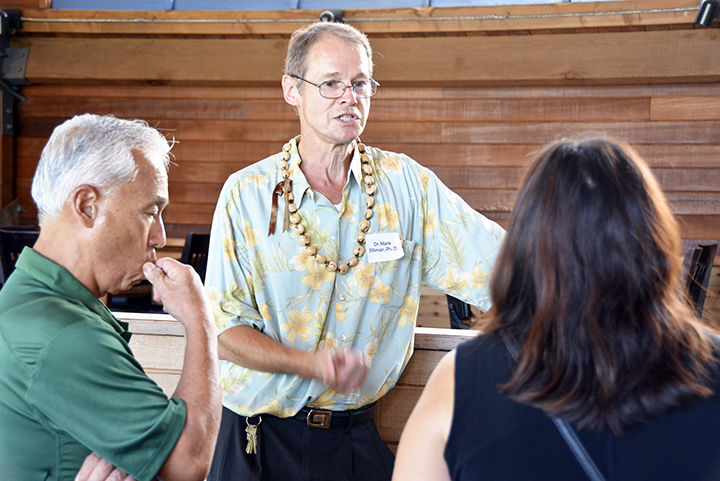LIHUE – Four years of high school, says Mark Silliman, won’t cut it anymore. “We as a nation are slipping globally because we’ve been keeping students in silos,” he said Friday. “We need to say we want to give them
LIHUE – Four years of high school, says Mark Silliman, won’t cut it anymore.
“We as a nation are slipping globally because we’ve been keeping students in silos,” he said Friday. “We need to say we want to give them this opportunity.”
Silliman, the director of “Early College High School Initiative/Jobs for the Future” program at Waipahu High School on Oahu, spoke to teachers, principals, and business leaders at a Kauai Chamber of Commerce luncheon about the benefits of promoting college learning while students are in high school.
It’s not an option, he said, but a necessity.
When comparing United States aptitude with international standards, a U.S. 15-year-old performed below average in mathematics ranking 27th among 34 countries, 17th in reading and 20th in science. U.S. students must do better, Silliman said, if they want to keep up with the rest of the world.
“It’s a national movement,” he said. “In 2013, President Obama was pushing it. Thirty-two states have established it.”
The opportunity to earn an associate of arts degree at the same time a student graduates from high school is a viable choice on Kauai.
Kristi Moises, a counselor for juniors at Kauai High School, believes early college learning gives students a different perspective. If studen-ts can pass the ACT Compass test, they can enroll in Kauai Community College.
“It prepares them and gets them in the frame of mind for college learning with their study skills and responsibility,” Moises said.
She gives the students the lowdown.
“I tell them people are not going to be holding their hand in college like they do in high school,” Moises said. “I tell them, if they choose not to show up or are late, their grades will suffer.”
Silliman has seen the benefits of early college learning. And yet, in some cases there are additional pressures on the students.
“I’ve seen lack of confidence because they are not sure they can handle the college workload, but they are doing it along with tens of thousands on the Mainland,” Silliman said. “These students are performing.”
Preparation for the workforce is the primary reason for early college learning. A much better educated and trained population is necessary to stay competitive.
“We need to unroll this because there are a lot of deserving keiki who want this,” Silliman said. “They want to accelerate. They want to get ahead. We can’t discriminate against age if they want it.”


